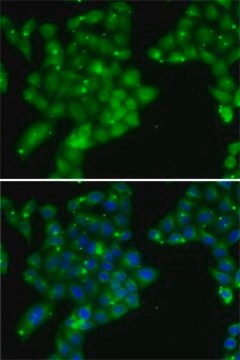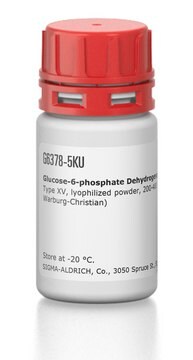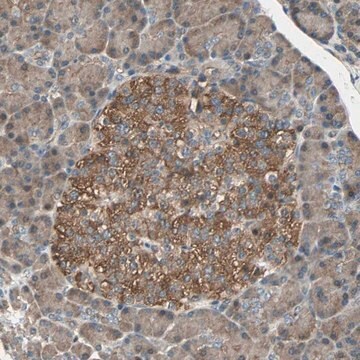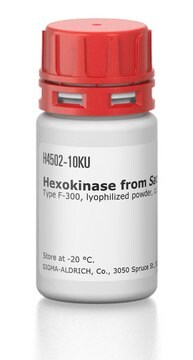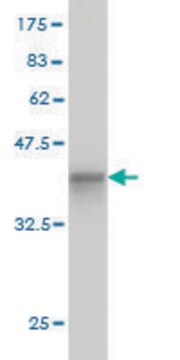MABS1190
Anti-Glucokinase/GCK Antibody, clone 9G1.2
clone 9G1.2, from mouse
Sinónimos:
Glucokinase, GK, Hexokinase-4, Hexokinase-D, Hexokinase type IV, HK IV, HK4
About This Item
Productos recomendados
biological source
mouse
Quality Level
antibody form
purified antibody
antibody product type
primary antibodies
clone
9G1.2, monoclonal
species reactivity
human
technique(s)
immunohistochemistry: suitable (paraffin)
western blot: suitable
isotype
IgG1κ
NCBI accession no.
UniProt accession no.
target post-translational modification
unmodified
Gene Information
human ... GCK(2645)
General description
Specificity
Immunogen
Application
Signaling
Glucose/Glycogen Metabolism
Quality
Western Blotting Analysis: 0.5 µg/mL of this antibody detected Glucokinase/GCK in 10 µg of HepG2 cell lysate.
Target description
Physical form
Storage and Stability
Other Notes
Disclaimer
¿No encuentra el producto adecuado?
Pruebe nuestro Herramienta de selección de productos.
Storage Class
12 - Non Combustible Liquids
wgk_germany
WGK 1
flash_point_f
Not applicable
flash_point_c
Not applicable
Certificados de análisis (COA)
Busque Certificados de análisis (COA) introduciendo el número de lote del producto. Los números de lote se encuentran en la etiqueta del producto después de las palabras «Lot» o «Batch»
¿Ya tiene este producto?
Encuentre la documentación para los productos que ha comprado recientemente en la Biblioteca de documentos.
Nuestro equipo de científicos tiene experiencia en todas las áreas de investigación: Ciencias de la vida, Ciencia de los materiales, Síntesis química, Cromatografía, Analítica y muchas otras.
Póngase en contacto con el Servicio técnico